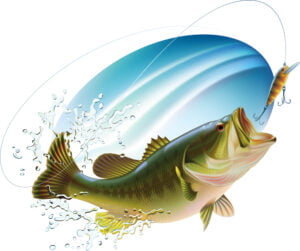
In the academic world, being able to find problems and offer smart solutions is a highly valued skill. Honestly, even out of colleges and universities, the world needs the people who would be educated with a practical orientation and change things from difficult situations to new opportunities. This is the main reason why colleges and universities ask students to write term papers, dissertations, and do projects. By doing this, while still being students, people do better in their profession. The only problem is that many of them are not trained well enough to write research papers and, as a result, feel not so confident.
To help you overcome this hardship, today, we will guide you on how to write a bass fishing research project. Academic experts from SmartWritingService will provide you with research paper help by means of answering all questions you have and write a paper that deserves an A+ grade.
Writing about Bass Fishing: What to Keep in Mind As You Write
No matter whether you plan to get help from a professional essay writing service or not, there is a set of features that a good piece of writing should have. Here, in this paragraph, we will shed some light on them.
Number one on the list of features that make a research paper successful is the appropriate structure. Introduction plays the first fiddle in any research paper, making a good layout for your thoughts and findings. In the entry part, try to keep as close to the point as it is possible – hence, the paper will be much more readable.
The second thing to pay special attention to is the focus of the paper. The definition of the problem, the thesis statement, the methods, the key findings – all of this should sound and be clear to the reader. It is simple to do; but only a few term papers are written with a focus like this.
As the last thing that makes a good research paper, we will place efficient results. Once you start writing the paper and seeking the solution, you should give evidence at every stage of your research, and, especially, at the end, where every figure matters.
Tied and True Pieces of Advice on Academic Writing for Students
As a newbie in academic writing, you might be wondering what the heck you are doing here and how to tackle the problem of having to write a paper to be published. What we want you to remember is that even with the most difficult assignment, don’t go for plagiarism – this way has nothing to do with academic success and good marks but rather will spoil your reputation and cause content issues.
Instead, you can go down the path of ‘slow success’ and acquire the real skill of academic writing. To give you a bit of support in this way, we have gathered the most effective pieces of recommendation for learners.
- Choose evidence for each thesis statement. If your essay is aimed to persuade the reader or give a clear explanation of your opinion on some issues, you should be careful when choosing arguments to back up the claims. Unnecessary to say, each point must be referenced well.
- Eliminate unneeded words. The readability of the paper highly depends on how you write – if it’s a clear sequence where every element is meaningful, leave it as it is. Yet, if your first draft contains clusters of words preventing you from seeing the meaning, do yourself a favor and cut out these words. This will also help you reach the stated word count since many essays and research papers lose points for exceeding the allowed number of words. For instance, common phrases such as ‘absolutely necessary,’ ‘shorter in duration,’ ‘personal opinion’ should be replaced with simpler ones – ‘necessary,’ ‘shorter,’ and ‘opinion,’ accordingly.
- Pay attention to vocabulary. Now, here you better keep the balance of using terms and other ‘smart words’ to make an impression of the educated person and convey ideas with simple text. Professor at Princeton, Daniel Oppenheimer, found in his study that long words that sound more academic actually prevent the reader from understanding the key ideas. Style is also vital for an academic essay – most of your vocabulary must be neutral, expressing the right shades of meaning, and carrying no heavy emotional weight.
- Avoid repeating the same words. Gratefully, the English language is especially rich in synonyms, so why use the same vocabulary in your research paper? As the frequently used word, ‘say,’ for example, can be substituted for ‘claim,’ ‘express,’ ‘disclose,’ ‘announce,’ ‘answer,’ ‘state,’ ‘respond,’ ‘suggest,’ ‘reveal,’ ‘deliver,’ and many other lexical units.
- Don’t use colloquial expressions. If you have ever been writing some serious papers and caught yourself mentioning phrases like ‘sooner or later,’ ‘this or that,’ ‘get through it,’ ‘top up the level,’ you know what we mean. In everyday speech and informal pieces of writing, they are perfectly okay. Yet, academic papers don’t forgive colloquialisms – in the end, it’s not the close friend you are talking to but a professor or a scientific community.
As you see, writing a research paper about bass fishing doesn’t make a bigger problem than other writing tasks. Following the given tips and diligently implementing them in your writing, you will see the massive progress in your writing with your own eyes.

